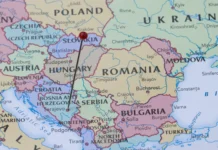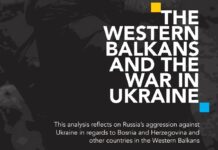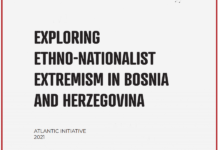The new strategic concept of NATO places emphasis on new challenges, such as security in cyber space and the need for modern anti-missile defense.
The year behind us was a year of transformation in NATO. The North-Atlantic Alliance is facing new challenges, challenges that differ from those in the past. However, Afghanistan remains the first priority.
This year, NATO announced its new strategic concept, which places emphasis on new challenges, such as security in cyber space and the need for modern anti-missile defense. When it comes to Afghanistan, NATO General Secretary, Anders Fogh Rasmusen, said at the Summit in Lisbon in December last year, that cooperation with Russia would be established.
„Russia will allow us to pass through its territories to supply our mission without limitations. From now on, we will be allowed to transport military equipment through Russia as well. NATO will enhance training of units fighting drug trafficking, which work in Afghanistan and other countries in the region“, Rasmusen said.
Afghanistan remains NATO’s first priority. Over a hundred thousand soldiers are serving in NATO mission in Afghanistan. Michael Clarke from London Royal Military Institute points to the importance of this mission: „From now to 2014 or 2015, Afghanistan will be top priority. NATO has to show it is efficient in implementation of the western strategy. Whatever happens there in the end, NATO has to succeed“.
Relations with Russia have so far been hindering expansion of NATO, as well as the placing of anti-missile shield close to Russian borders. At the moment, NATO is not thinking about a new cycle of expansion. At the Lisbon Summit held two months ago, NATO invited Russia to participate in creation of a joint anti-missile shield.
In this context, Anders Fogh Rasmusen said: “For the first time in history, NATO members and Russia will cooperate in the field of joint defense. It will be very clear to Russia that this defense system is not established to counter Russia. Defense of Europe will be the best so far“.
However, Russian president Dmitry Medvedev has recently warned about dangers of the new race in armament, unless Moscow is treated, as he said, as an equal partner.
British expert Michael Clarke also talks about NATO’s new priorities, such as defense against attack against computer systems by hackers: „These challenges are much more diverse today than they used to be. NATO has to be more agile and flexible in defense against them. It has to define its priorities precisely, in order for money and people to be allocated to the most important tasks“.
This month, the biggest among NATO members, the United States, conducted its own analysis of the mission in Afghanistan. President Obama has recently talked about its results: „In a lot of places in that country, the reached results are still fragile and the situation can deteriorate. However, there is no doubt that we are driving the Taliban out of their strongholds, returning these places to Afghanistan authorities“.
Besides the fight against the Taliban, NATO’s strategy includes training of local army and police forces, so they could, one day, take full responsibility for security in their country.
Author: Jennifer Glasse | London, December 28, 2010
Source: VOA News







